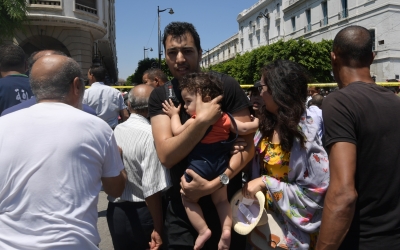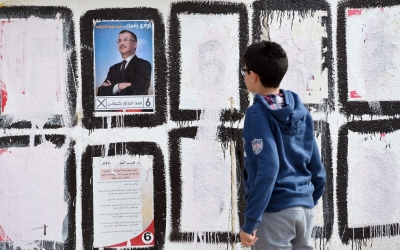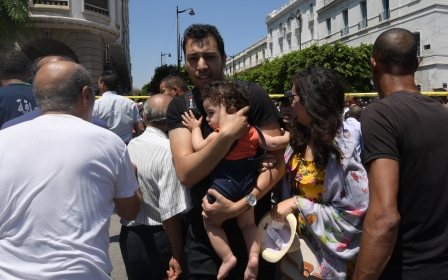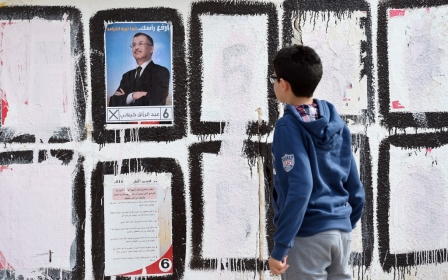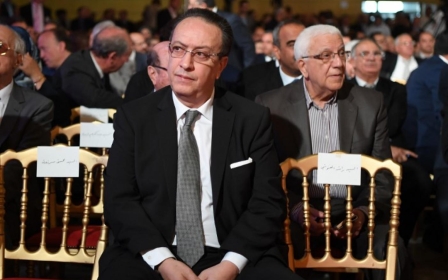Tunisia's President Essebsi severely ill but in stable condition, says adviser
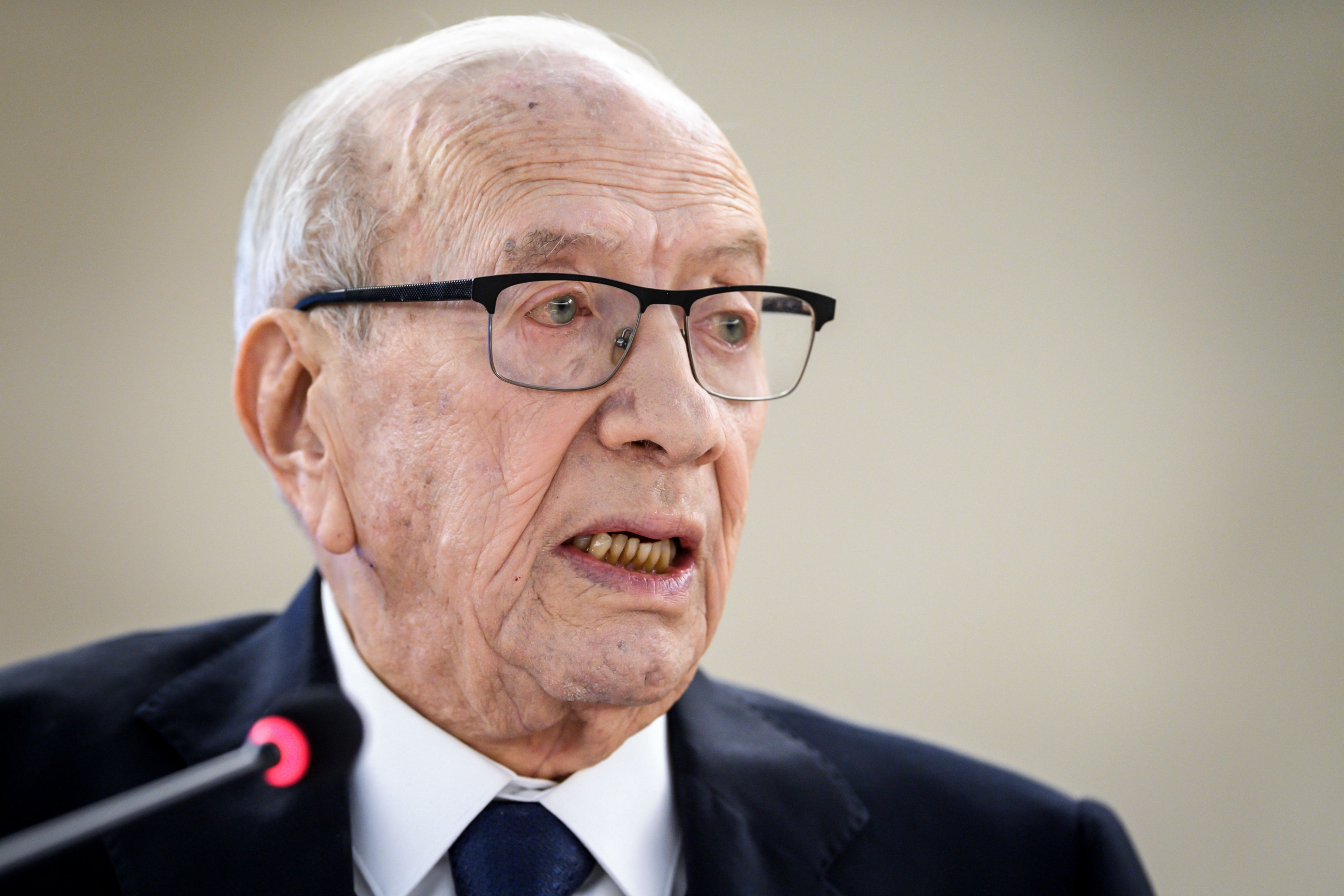
Tunisian President Beji Caid Essebsi is severely ill but in a stable condition, his adviser said on Thursday, refuting multiple reports that the 92-year-old had died.
Essebsi was rushed to a military hospital after becoming severely ill, the presidency said earlier in the day.
Later, Ennahar TV and multiple figures in Tunisia reported that the veteran politician had died.
However, the president's close aide Firas Guefrech tweeted that Essebsi is actually in a stable condition. Guefrech had earlier described Essebsi's condition as critical.
New MEE newsletter: Jerusalem Dispatch
Sign up to get the latest insights and analysis on Israel-Palestine, alongside Turkey Unpacked and other MEE newsletters
Translation: "Please do not be misled by rumours, the president's condition is stable. Your prayers for healing."
Prime Minister Youssef Chahed said on Facebook that Essebsi was receiving the attention he needed and that people should stop spreading fake news about his condition.
Chahed said he visited Essebsi at the military hospital and "the president of the republic is in the process of receiving all the necessary attention he needs".
Last week, the presidency revealed that Essebsi had undergone routine medical tests, with one adviser saying the president had experienced some "discomfort".
The news of Essebsi’s ill health came moments after twin suicide attacks rocked the Tunisian capital, killing one and wounding several others.
It is unknown who was behind the blasts, which targeted a police vehicle in central Tunis and a national guard headquarters in the capital’s al-Qarjani district.
Veteran politician Essebsi, the founder of Tunisia's Nidaa Tounes party, won the presidency in 2014.
In April he announced he would not be standing for re-election in the upcoming 17 November elections, saying it was time he made way for younger leaders.
Essebsi has been a prominent figure in politics for decades, and was appointed interior minister in 1965 by Tunisia's first post-independence president, Habib Bourguiba.
Over the years, Essebsi has also served as director-general of the national police, foreign minister, and ambassador to France and Germany.
Interim president
The Tunisian parliament held an emergency meeting on Thursday afternoon, but only discussed the security situation in light of the suicide bombings, according to local media reports.
With Essebsi incapacitated, Tunisia’s constitution dictates that a temporary vacancy should be announced by the constitutional court, with Chahed serving as interim president for no longer than 60 days.
In the event of death or total incapacity, the role of interim president is passed instead to the speaker of parliament, Mohamed Ennaceur, for a period of no less than 45 days and no more than 90 days.
Though interim presidents are able to fulfil much of Essebsi’s duties, they would not be entitled to propose amendments to the constitution, call for a referendum or dissolve parliament.
'It is important that the procedures are followed and the elections go ahead without delay'
- Anthony Dworkin, analyst
However, Tunisia currently lacks a constitutional court, the body that appoints people to the role of interim president, as the country’s political class has not been able to agree on its membership.
This could complicate Essebsi’s succession, Tunisian political analyst Mohamed Dia Hammami told Middle East Eye.
Hammami said, however, there appears to be consensus amongst political parties that the parliament speaker could fill Essebsi’s vacant role and serve as acting president, with or without the nod from the constitutional court.
“Everyone is concerned about a vacant position. Therefore, I believe they will try to evade a crisis scenario by reaching consensus, irrespective of the presence of the constitutional court,” Hammami said.
Anthony Dworkin, a senior policy fellow at the European Council on Foreign Relations think tank, said the absence of a constitutional court creates “potential for instability”, but that holding presidential elections on time would prevent further uncertainty.
“Because of the terrorist attack today, there is some possibility that people would be talking about security issues and possibly calling for a delay in the elections,” he told MEE.
“It is important that the procedures are followed and the elections go ahead without delay.”
Sharan Grewal, a postdoctoral research fellow at the Center for Middle East Policy at the Brookings Institution, acknowledged there would be "a shroud of unconstitutionality" surrounding Ennaceur's succession.
"But I don’t think any major political player in Tunisia would have incentives to try to create a crisis," he told MEE.
"So my optimistic take would be that Tunisia soon returns to politics as usual."
Middle East Eye delivers independent and unrivalled coverage and analysis of the Middle East, North Africa and beyond. To learn more about republishing this content and the associated fees, please fill out this form. More about MEE can be found here.


